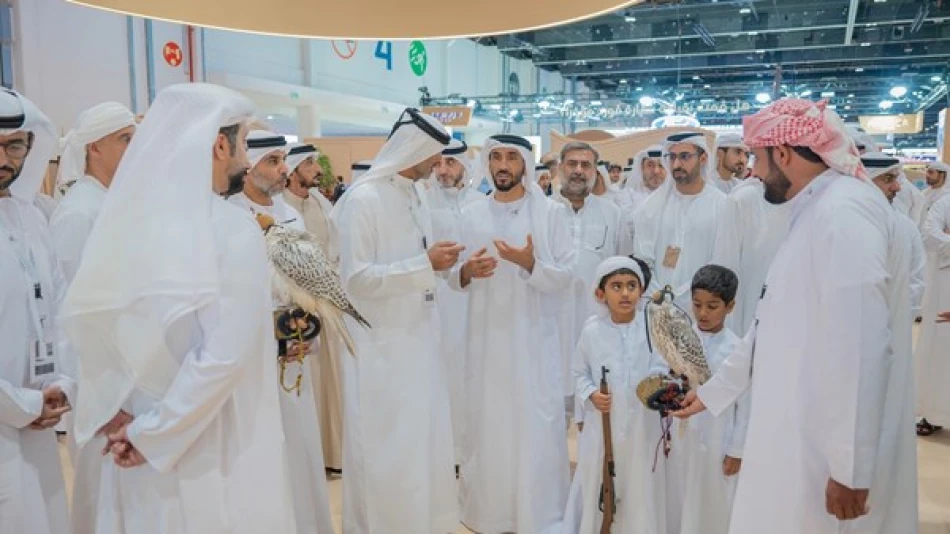
Sheikh Nayhan Bin Zayed Visits the 22nd Abu Dhabi International Hunting and Equestrian Exhibition
Abu Dhabi Leverages Traditional Sports to Bridge Heritage and Modern Athletic Development
Sheikh Nahyan bin Zayed Al Nahyan's visit to the 22nd Abu Dhabi International Hunting and Equestrian Exhibition underscores the emirate's strategic approach to preserving cultural heritage while building world-class sporting infrastructure. The Abu Dhabi Sports Council's prominent pavilion showcases how traditional Emirati sports are being systematically integrated into broader athletic development programs, positioning the emirate as a unique player in the global sports economy.
Strategic Sports Diversification Beyond Football and Formula 1
The Sports Council's exhibition presence highlights Abu Dhabi's deliberate move beyond high-profile international sports toward heritage-based athletic disciplines. The pavilion features specialized clubs including the Abu Dhabi Marine Sports Club, Abu Dhabi Falconers Club, Abu Dhabi Archery Club, Abu Dhabi Fencing Club, and Ghantoot Racing and Polo Club.
This diversification strategy mirrors successful models in other Gulf states, where traditional sports serve as cultural anchors while generating tourism revenue. Unlike Dubai's focus on mega-events and Qatar's World Cup legacy projects, Abu Dhabi is carving out a niche in heritage sports that require minimal infrastructure investment but offer significant cultural returns.
Cultural Sports as Economic Assets
Tourism and Identity Integration
The exhibition's timing through September 7, 2025, at ADNEC Abu Dhabi coincides with the emirate's broader tourism diversification efforts. Heritage sports like falconry and equestrian activities appeal to high-spending cultural tourists, particularly from Europe and North America, who seek authentic experiences beyond luxury shopping and beach resorts.
The Sports Council's platform approach—where multiple traditional clubs operate under one umbrella—creates operational efficiencies while maintaining distinct sporting identities. This model could prove attractive to other emerging sports markets seeking to balance modernization with cultural preservation.
Soft Power Through Athletic Heritage
Abu Dhabi's emphasis on traditional sports serves broader diplomatic and cultural objectives. Falconry, archery, and equestrian sports resonate internationally while reinforcing Emirati identity domestically. This contrasts with Saudi Arabia's more aggressive sports spending strategy, which has drawn criticism for "sportswashing" allegations.
The exhibition format allows the emirate to showcase sporting heritage without the controversial associations that have accompanied some Gulf sports investments in European football or golf tournaments.
Market Implications for Regional Sports Development
Abu Dhabi's integrated approach to heritage and modern sports creates interesting opportunities for specialized sports equipment manufacturers, cultural tourism operators, and sports education providers. The focus on community engagement through traditional sports could generate more sustainable local participation rates than imported sporting spectacles.
For investors and sports industry professionals, Abu Dhabi's model suggests that cultural authenticity may prove more valuable long-term than expensive international acquisitions. The emirate appears to be building sporting soft power from within rather than purchasing it externally—a strategy that could yield stronger returns as global audiences increasingly value authentic cultural experiences over manufactured sporting entertainment.
Most Viewed News

 Layla Al Mansoori
Layla Al Mansoori






